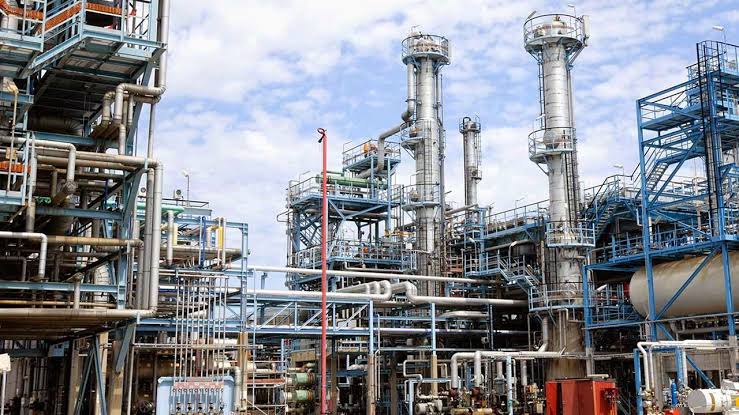The Port Harcourt Refinery, operated by the Nigerian National Petroleum Company Limited (NNPCL), has temporarily shut down operations, with only its Crude Distillation Unit (CDU) currently running, according to top refinery sources.
The CDU is responsible for producing naphtha, kerosene, and diesel but does not have the capacity to produce Premium Motor Spirit (PMS), also known as petrol.
This is a significant development as the refinery was initially reported to have been producing and trucking out PMS to the public. However, insiders confirmed that the refinery’s production capabilities are currently limited to non-PMS products.
A senior refinery official disclosed that the CDU remains operational but stressed that it cannot produce the necessary components for petrol.
ATTENTION: Click “HERE” to join our WhatsApp group and receive News updates directly on your WhatsApp!
“The CDU can produce naphtha, kerosene, and diesel, but it cannot produce PMS,” the official revealed, adding that the refinery is not producing enough quantities to meet public demand.
The ongoing production issues come despite earlier claims by NNPCL that the refinery was running at 70% capacity.
On Tuesday, the company confirmed that it had resumed operations at the old Port Harcourt refinery, producing a blend of Straight-Run Gasoline (naphtha) mixed with crack C5, a blending component sourced from Indorama Petrochemicals, to create PMS.
This blending process, though standard, raised concerns about the quality of the petrol being produced.
NNPCL’s Chief Corporate Communications Officer, Olufemi Soneye, had earlier announced that the refinery was producing 1.4 million liters of blended PMS daily, along with other products like kerosene and diesel.
READ ALSO: 63% female students sexually harassed in 12 varsities – Report
However, sources at the refinery have cautioned that these blended gasoline products might not meet the required specifications for widespread use.
The temporary shutdown of the refinery, coupled with the limited production capacity, raises questions about the country’s ability to meet growing fuel demands in the face of ongoing operational challenges.
Additionally, with the refinery’s new plant set to commence operations in 2026—pending financial availability—the country’s fuel supply situation remains precarious, especially as the refinery struggles with funding issues exceeding $2 billion.
.png)
 9 months ago
89
9 months ago
89









 English (US)
English (US)